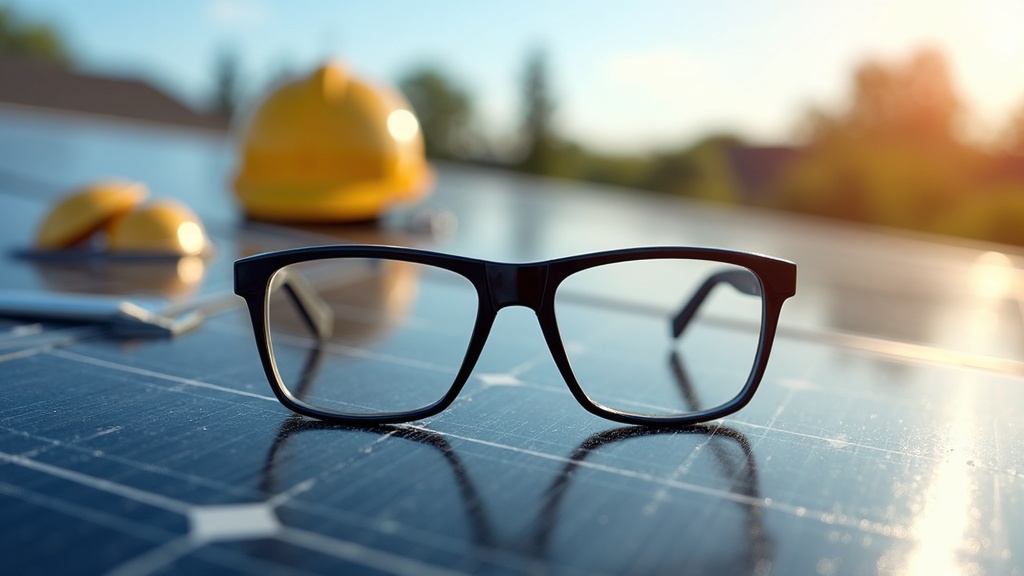Picture Credit: Canva
The adoption of solar energy in home design isn’t just a trend; it’s a necessity for sustainable living. Solar energy is a game-changer in residential construction, offering an inexhaustible, clean, and environmentally friendly power source. It reduces reliance on fossil fuels and cuts greenhouse gas emissions, making it a cornerstone of eco-friendly homes. Solar power systems, when combined with energy-efficient building design and appliances, help reduce overall energy consumption.
Understanding Solar Power and Its Benefits
Solar power is the conversion of sunlight into electricity using photovoltaic (PV) cells. These cells capture the energy from the sun and convert it into usable electrical power. This process is not only efficient but also environmentally friendly, making it a popular choice for those looking to reduce their carbon footprint and embrace renewable energy sources.
Environmental and Financial Benefits
Switching to solar power offers numerous environmental and financial benefits. Here are some key points to consider:
- Eco-friendly and Sustainable: Solar energy is a clean energy source that does not produce harmful emissions, making it an excellent choice for those looking to reduce their environmental impact.
- Energy Independence: By generating your own solar electricity, you can reduce your reliance on traditional power grids and achieve greater energy independence.
- Cost Savings: While the initial investment in a solar panel system can be significant, the long-term savings on energy costs can be substantial. Many governments and utility companies also offer incentives, tax credits, and rebates to help offset the initial costs.
- Increased Property Value: Homes equipped with solar technology often see an increase in property value, making it a wise investment for the future.
By understanding the power of the sun and the benefits of solar energy, you can make informed decisions about incorporating this renewable energy source into your home. Whether you’re looking to reduce energy costs, achieve energy independence, or contribute to a sustainable future, solar power is a viable and beneficial option. For those seeking high-quality solar panels and inverters, The Home Upgrade is a valuable resource to explore. They offer a wide range of products and expert advice to help you make the best choice for your home energy needs.
Planning Your DIY Solar Power Project
Before diving into a DIY solar power project, it’s essential to assess your home’s solar potential. This involves evaluating several factors to determine if your home is suitable for solar energy. Consider the following:
- Sunlight Exposure: Measure the amount of sunlight your home receives daily. Homes with unobstructed, south-facing roofs are ideal.
- Roof Condition: Ensure your roof is in good condition and can support the weight of solar panels.
- Local Climate: Understand how your local weather patterns affect solar energy production.
- Energy Needs: Calculate your household’s energy use to determine the size of the solar power system you’ll need.
Choosing the Right Solar Power System
Selecting the right solar power system is crucial for maximizing energy efficiency and meeting your energy needs. Here are some steps to guide you:
- Research Solar Technologies: Familiarize yourself with different types of solar panels, such as monocrystalline, polycrystalline, and thin-film panels.
- Compare Solar Providers: Compile a list of solar providers, including both local installers and national companies. This will give you a range of options to choose from.
- Evaluate System Components: Consider the quality and compatibility of components like inverters, batteries, and mounting systems. For instance, eg4 batteries and inverters offer reliable and efficient energy storage for homes.
- Request Quotes: Narrow down your list of providers and request quotes. Ask about permits, the number of panels needed, warranty details, and the installation process.
- Review Financing Options: Understand the financing options available, such as paying cash, loans, leasing, or power purchase agreements (PPAs).
By following these steps, you can choose a solar power system that aligns with your home design and energy goals.
Installing Solar Panels: A Step-by-Step Guide

Credit: Canva
Before you begin the process to install solar panels, it’s crucial to prepare adequately. Start by evaluating your property to determine its suitability for solar panel installation. Ensure your roof is free of shading from nearby trees or buildings and can support the weight of the solar panel system. The orientation and tilt of the roof are also essential factors for optimal energy production.
DIY Solar Panel Installation Process
Once you’ve determined your property’s suitability, you can proceed with the installation. Follow these steps for a successful solar panel installation:
- Secure the Panels: Attach the panels to the roof using brackets or other mounting systems.
- Connect to an Inverter: Link the solar panels to an inverter, which converts the direct current (DC) produced by the panels into alternating current (AC) used in homes.
- Integrate with Home Electrification: Ensure the system is integrated smoothly with your home’s electrical system.
- Test the System: After installation, test the entire energy system to ensure everything is functioning correctly.
Proper planning and execution are key to a successful DIY solar panel installation. Take your time to follow each step carefully.
Ensuring Safety and Compliance
Safety and compliance are paramount when installing solar panels. Here are some tips to ensure you meet all necessary standards:
- Follow Local Regulations: Make sure you adhere to local building codes and regulations.
- Use Proper Safety Gear: Always wear appropriate safety gear, such as gloves, helmets, and eye protection, during installation. Protective eyewear, such as transition safety glasses, can be especially useful when working outdoors on solar installations, where you’re moving between bright sunlight and shaded areas.
- Consult Professionals: If you’re unsure about any part of the process, consult a professional to avoid potential hazards.
By following these guidelines, you can ensure a safe and compliant solar panel installation, contributing to your home improvement and energy efficiency goals.
Conclusion
Solar energy is a game-changer in residential construction, offering an inexhaustible, clean, and environmentally friendly power source. The journey to creating an eco-friendly home with solar power is not only beneficial for the planet but also offers long-term financial advantages, making it a wise and sustainable choice for the future.




